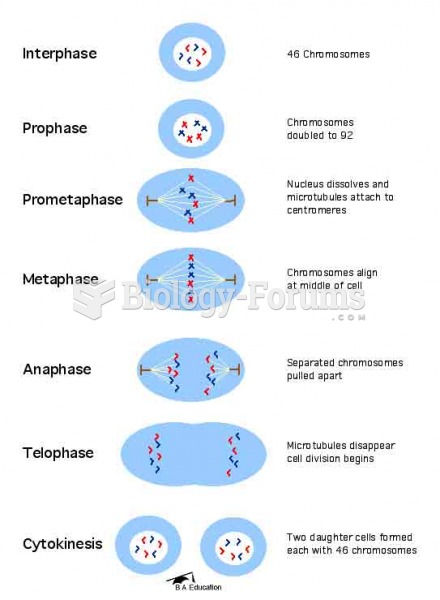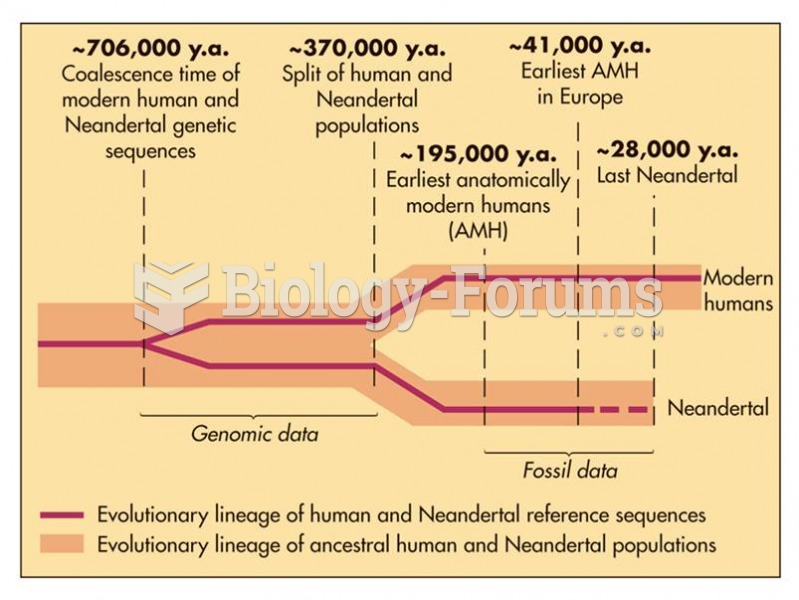This topic contains a solution. Click here to go to the answer
|
|
|
Did you know?
Each year in the United States, there are approximately six million pregnancies. This means that at any one time, about 4% of women in the United States are pregnant.
Did you know?
Vaccines prevent between 2.5 and 4 million deaths every year.
Did you know?
The senior population grows every year. Seniors older than 65 years of age now comprise more than 13% of the total population. However, women outlive men. In the 85-and-over age group, there are only 45 men to every 100 women.
Did you know?
Medication errors are more common among seriously ill patients than with those with minor conditions.
Did you know?
Women are 50% to 75% more likely than men to experience an adverse drug reaction.







